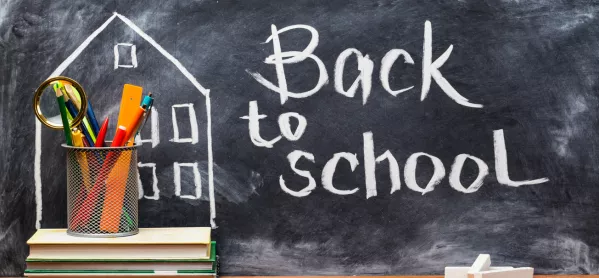The exams group Cambridge Assessment has recommended that Years 10, 12 and 5 return to schools first when they reopen, as a “corrective” to the focus on early primary children being prioritised for return.
In a briefing compiled to inform policy discussion between Ofqual and the Department for Education around which pupils will return first, seen by Tes, Tim Oates, the group’s director of research and development, said that the youngest pupils “have the greatest recovery time...relative to learning loss”, while Years 10 and 12 have the least prior to GCSEs and A levels, as do Year 5 pupils who would be completing Sats assessments in Year 6.
Dominic Raab: ‘Risk’ of second spike from opening all schools
Coronavirus: Open schools ‘would increase infection’. But how much?
Exclusive: School opening options that the DfE is considering
Mr Oates said this suggested that these students should be returned “swiftly” to the school environment, subject to advice from the government’s scientific advisory group, Sage, so that they could benefit from “individual diagnosis and care which would enable reintegration of pupils back into schooling” in an environment with a higher-than-usual teacher-pupil ratio.
Learning lost during the coronavirus crisis
He said that while “some learners will find themselves in highly supportive settings and make good use of that support”, “at the other extreme, pupils may find themselves in highly adverse settings with no internet connection, and no flat surface on which to lay a book.”
“Schools will vary greatly in how they manage outreach and the extent to which they can offer it,” Mr Oates added. “Most young people are likely to follow their learning preferences, neglecting some areas of subjects or whole subjects.
“All these things can interact for different young people in different contexts to give very different patterns of learning loss.”
Mr Oates said that this meant the current learning loss for pupils needed to be quantified, and that while the sixth-form timetable could be used to remedy any lost learning for summer 2021 because of its amounts of free study time, this would be more difficult for GCSE pupils.
“One of the things is, so much is at stake and we are seeing a very high level of constant collaboration between the government and exam boards,” Mr Oates told Tes.
“We do not have anything of direct equivalence previously, so we are relying on a lot of research to understand the consequences of what we do.
“There is constant exchange to try and get policy right on education and assessment, and a great deal of constant discussion about what principles should be used to formulate policy.”
He said that Cambridge Assessment had been “concerned by the debate over school reopenings which was operating at the level of principle” rather than on evidence-based terms, and that the recommendations for Years 5, 10 and 12 to return first could be a “corrective” to the focus on younger primary pupils being the first to return to school. Although Mr Oates added that it would be best if both these critical groups and young primary pupils could return safely at the same time.




